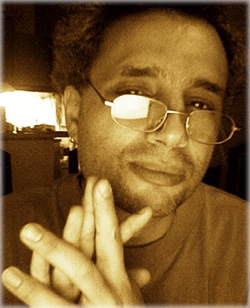
Dear Friend and Reader:
I TRAVELED back to the United States from Europe on Thursday to be in New Paltz for the dorms opening. After a six-hour scheduled layover, my flght was delayed in Dublin because a terrorism scare held the equipment up in Spain while it was being searched for a hoax bomb. I got on that airplane and the first thing I thought well, I hope the dogs did a good job. I love dogs, and I trust them, so I really felt fine.
On Friday morning, I was ready for work, however. My first meeting was with Ray Bryant, the SUNY New Paltz chief of police, who I figured out from an email wanted me in his office for a meeting. He was subtle about it, but I took the cue and showed up with Beth Bagner, a nursing student from further upstate who has been very helpful.
I’ve known Ray on and off for awhile. What I didn’t know was how much I liked the guy, or how smart he was. He wanted to make sure I wasn’t planning any building takeovers or such, and said he was counting on my leadership to keep things calm and sensible on the campus next week.
I assured him that I am basically a geek who sits and types most of the time, and that my “greeters” — the people I have recruited to give out information this week — would be there to speak calmly with parents and students. I told him that I have spent most of my energy this year in New Paltz making copies of my old articles, teaching students and community people about science and politics.
I was appreciative to have an open dialog with Public Safety, because I know the administration is pretty paranoid about me and sometimes loses its common sense.
However, if students put together what is happening, their first response will be anger, and that anger is going to need to be directed in some constructive direction. I propose that direction be toward the exit — getting out of their toxic dorms, encouraging others to do the same, and pressuring the administration for real testing.
Personally, I have nothing against building takeovers; I consider them part of the apple pie of American education. But I think this can all be done in a calm way that focuses on the science and politics of the situation.
I also said I was concerned that involvement of families would be crucial, since this is an issue that is extremely difficult for students, for many reasons. We agreed this was very different than, say, the 1960s — and he said that even at the Police Academy or Parris Island, where U.S. Marines are trained (he has two sons serving in Iraq) familes were evermore involved in the lives of students. I am realistic about this issue: it’s extremely difficult to face or to work on, and students do need the support of their families to get to a safe place.
I left with the satisfying feeling of knowing I have an understanding with someone with whom it matters.
Beth and I went back to my motel so I could check email — I was checking for press inquiries. I talked to two different reporters who were trying to get in touch, both of whom I’ve known for nearly all of the 16 years I’ve been doing this work. One resulting article iscovered in the entry below; the other will appear in the New Paltz Times next week.
Beth and I went to the campus to put out some Dioxin Dorms bookmarks, and feeling confident after my meeting with Ray, I went to the Admin Building, got into the elevator and pushed 9 — the top floor. There were two people I wanted to see: L. David Eaton, a college vice president who has served in many capacities and has been on campus since long before the dioxin incident; and Sandy Hess, the secretary to college president Dr. Steve Poskanzer.
Eaton welcomed me warmly; the fact that I once sued him in federal court for kicking me off campus at the peak of the dioxin crisis was old history. I told him what I was up to; I did not need to tell him why. Everyone knows why. It’s just that administrators still feel I should trust the state health department, when I know their tricks all too well — and when I’ve uncovered countless problems with the “cleanup.”
Eaton told me that he had let his daughter live in Scudder Hall, one of the dioxin dorms, for two years around 2003. I am not impressed by this. I said, “This would be another discussion in a therapy group, Dave. On your watch, 15,000 students have come through those dorms, and you have a good reason to give yourself reasons to believe they are safe.”
He said he was aware of this particular issue, and had thought it through — many times.
I truly hope his daughter was one of the lucky ones who did not live in a room with a hot spot. Unfortunately, he may not know for anywhere from 10 to 20 years — and we will need to see how the lives of his future grandchildren progress.
I finished up with Dave and went around the corridor to the Office of the President, making sure everyone I saw along the way got a Dioxin Dorms bookmark.
I have known Sandy Hess, the president’s secretary, for a long time as well, and lately I’ve been copying her on many of my strategy emails so that the college is aware of what I am up to. One of the rules of the game I play by is absolute transparency. Earlier in the summer, I sent several letters to the president suggesting that they be a lot nicer to the students who come looking at test results in the library.
I insisted that instead of the librarian giving them dirty looks, that the students be offered milk and cupcakes and free copy cards, which would be good for the students, and for the college, giving the impression that nobody has anything to hide. On a student budget, $10 for copying can be a lot of money — you could be spending your dinner making copies of test results.
Sandy Hess, however, looked extremely nervous. They know that if I succeed, I am going to cause a lot of problems for the college, that is, problems on the way to solving their one real problem. I ended by suggesting that she do a Google image search on the word dioxin, if she needed further insight.
But, you see, I am not in denial about one thing, and really, I thank my old therapist, Joe Trusso, for this. Administrators know exactly what is happening. They have their reasons for their posturing, and they can give the impression that they are not concerned. Yet we can count on the fact that they know, that they feel disturbed by what they “must” do as state officials, and that they have some trouble sleeping at night.
They should be worried: especially the moment that the maintenance department fires up the hot water system, and all those greasy radiators in Bliss, Capen, Gage and Scudder, and the pipes hidden in the walls and floors, heat up to nearly 200 degrees, and those toxins start to melt into the air.
Yours and truly,
![]()



